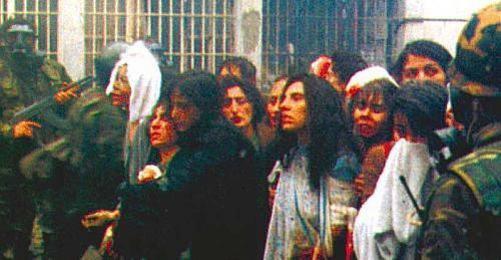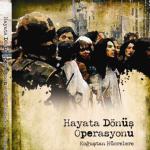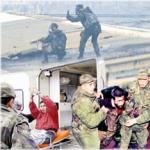The statement of the Gendarmerie General Command (JGK) created more question marks at the Wednesday hearing (9 March) of the trial focussing on the incidents in the Bayrampaşa Prison during the "Return to Life" Operation. The Command declared that the military officers on trial in the "Bayrampaşa Case" were all on duty at the Ümraniye Prison (Asian side of Istanbul) and not at the Bayrampaşa Prison (European side of Istanbul) at the time of the operation. It was furthermore announced that plans for the operation "could not be found". Lawyer Oya Aslan told bianet that this statement is in contradiction with the statements initially given by the military officers and the documents in the case file.
During the so-called "Return to Life" operation on 19-22 December 2000, the police violently ended the "death fasts" of hundreds of political prisoners who had protested against a transfer from large wardens to F-type cells with only 3 or 4 prisoners. Twelve detained and convicted prisoners died in the Bayrampaşa Prison (Istanbul) as one of the prisons involved in the operation.
The Bakırköy 13th High Criminal Court had required the Bayrampaşa Prison Special Intervention Plan dated 15 January 2000 from the General Staff Operations Office Directorate. That way it should have been possible to determine exactly where the privates on trial were on duty at the time in question.
"We could not find the Intervention Plan"
On 11 February, the Gendarmerie General Command replied to the Bakırköy court and claimed that they did not have any information or documents related to the intervention plan at their disposal. The Gendarmerie General Command put forward that they "were not able" to find any information regarding the requested plan at the Istanbul Gendarmerie Regional Command either.
Moreover, the Gendarmerie General Command announced that the tried privates were assigned to the Ümraniye Prison at the time. 38 private soldiers and one non-commissioned officer stand trial in the scope of the Bayrampaşa case.
"This is not my signature"
At the first hearing of the case on 23 November - ten years after the incident -the court had also decreed to obtain the original statement of defendant Private Hilmi Çolak given in the course of the initial interrogation at the gendarmerie. Çolak had stated that the statement forwarded to the court by military officials was not his and that it had not been signed by him but somebody else.
The gendarmerie did not convey any information on Çolak's statement. The Malkara District Gendarmerie Command replied that "the original of the statement could not be found".
"Response of the gendarmerie contradicts case file"
Aslan, one of the joint attorneys of the victims, assessed the answer of the gendarmerie as "contradictory". She questioned, "In the reply of the gendarmerie it is said that the intervention plan for Bayrampaşa was not available but on the other hand it is known where the private soldiers were on duty. What kind of contradiction is this?"
Lawyer Aslan alleged that the intervention plan was prepared by the Istanbul Gendarmerie Regional Command. She underlined the fact that the gendarmerie's statement about the place of assignment of the private soldiers was in contradiction with both the documents in the case file and the initial statements of the privates. (AS/VK)















